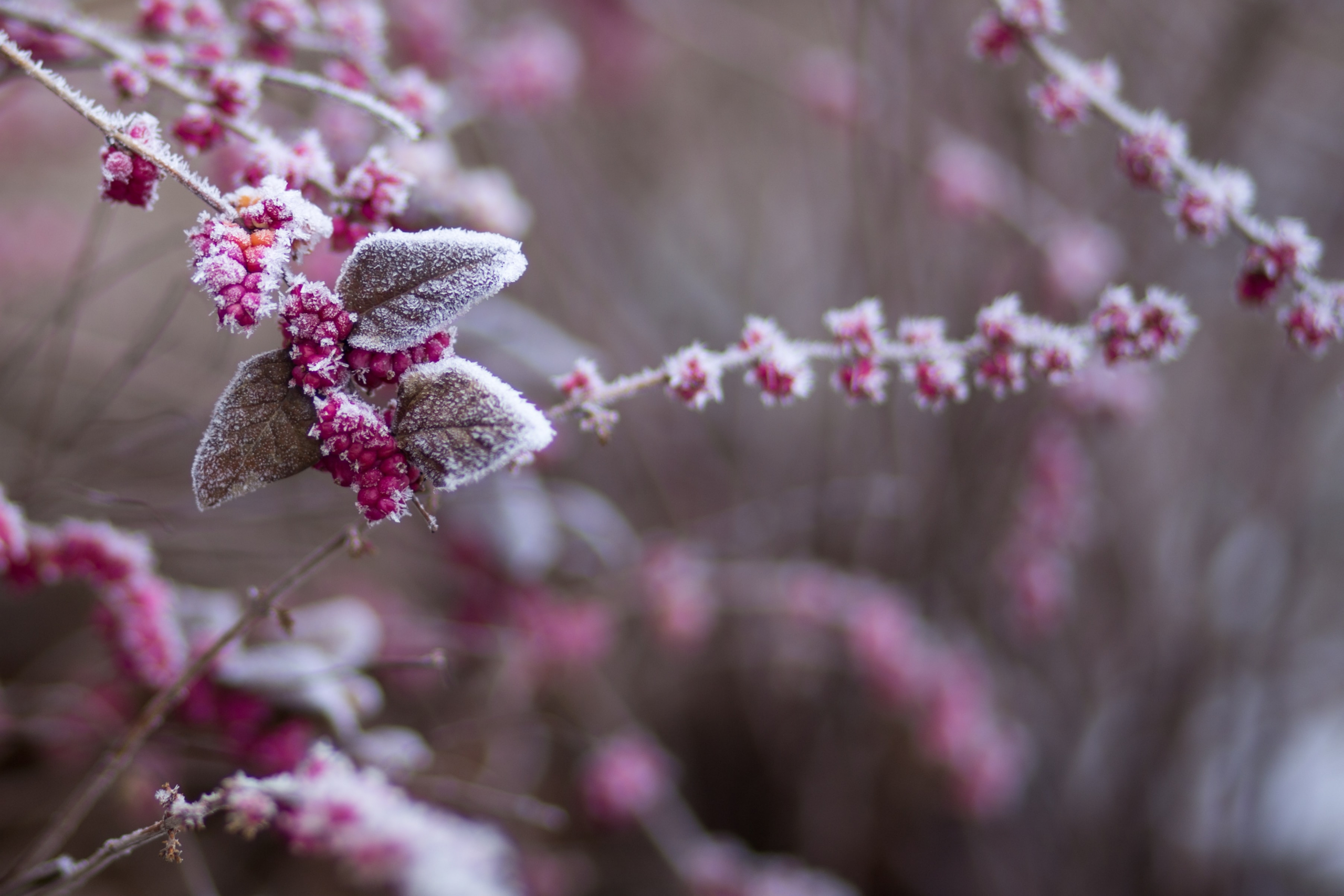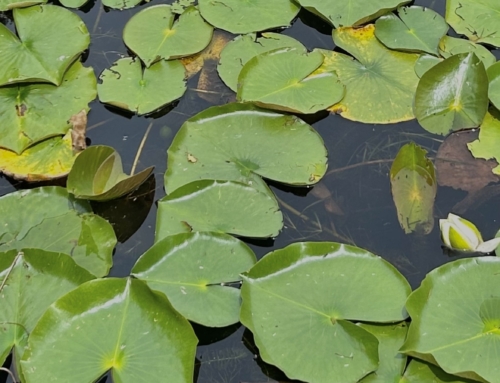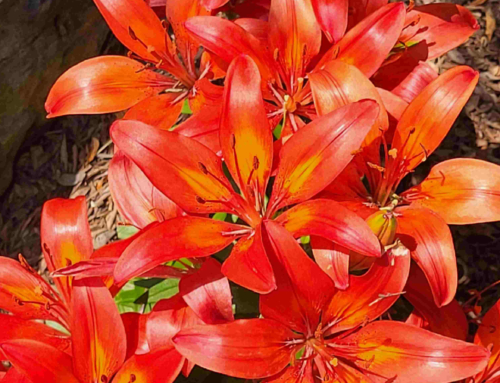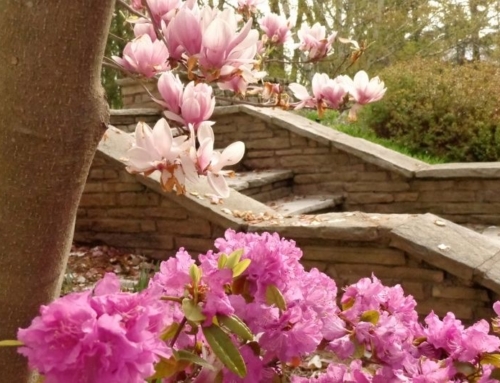Written by: Loretta Jaunzarins, Pastor of Grace Lutheran Church, Hamilton and Life-Cycle Celebrant
For Christmas 2000, I received the book Soul Gardening: Cultivating the Good Life by Terry Hershey, who at the time of print, had transitioned from serving as a Protestant minister to a writer and landscape designer on an island in Puget Sound. It was with this book that I really came to appreciate the garden through all its seasons, especially winter. Winter brings its own pervading tone and mood. I’m writing today as we move through mid-fall with some ideas for spiritual growth and transformation as you put your gardens to bed for the winter and wonder if spring will ever come again.
What gifts can our gardens give us this winter?
I’ve always chosen bushes and perennial plants that will add ‘winter interest’. Yellow and red twigged dogwood and grasses. These not only bring a delightful vision to the eye, but they remind me that, yes, they will bud and sprout if only I am patient. They give me hope, especially in the dead of winter.
Once, when Terry Hershey was showing someone his garden in winter, they commented, “Not much to see here, is there?” “True,” he wanted to say, “but I guess that all depends on what you’re looking for . . .” He suggests we walk in our garden in winter and look up to see what our trees look like when they are bare leafed. Then, have a look at the bark to see what it looks like after the sap has run to the roots. In the winter our gardens are catching their breath, just as we need to. But often, we are afraid to stop and catch our breaths. In our culture, it’s both difficult and frowned on to have times of nonproductivity. Even in our exhaustion, we find it difficult to slow down and relax. Winter does us a favour. It makes us come to a full stop when our roads are clogged with snow and invites us instead to enjoy a cup of tea and a good book or even just our own company.
Winter gardens give us the gift of honesty especially when there’s only some snow on the ground. Now “the bones of the garden, those plants or rocks or structures that give the garden space its essential shape and character” are revealed. “They are the ingredients for a design or the weaving of a story. More often than not, color and flowers can get in the way.” Hershey goes on to write that the winter garden gives us an opportunity to get reacquainted. Winter is a time to look at your garden, bare-bones and all, and reacquainted yourself with all those parts of it that disappear as soon as plants sprout in spring. Maybe that’s the true garden, our true self, unmasked by what usually covers it.
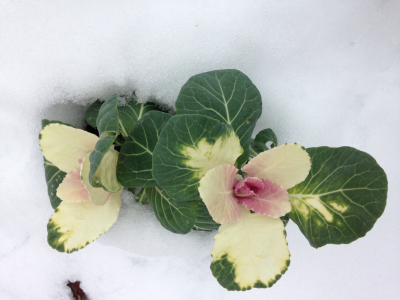
When our gardens are asleep for the winter, it’s a time to enter them as a place of solitude, a neutral zone, a place of quietude. It’s an invitation to do the inner work of reflection that we all need. You can use your winter garden as a place for reflection by walking in it daily, feeding the birds, sitting on a bench or in a chair wrapped in a blanket with your cup of tea. Each day stop and see who is there visiting with you. Who else calls your garden home? Pay attention to sounds, or no sounds. Sit in silence, if you can, and think about what it’s like, silence. Make your garden your place of retreat especially during this time of the pandemic. You don’t have to go far to get the benefits time away can sometimes offer.
As the season progresses and we round the winter solstice and flow into deep winter, bring out those 2021 gardening catalogues and go through them letting yourself be amazed at the beauty of flowers and fruit and vegetables. As you spend time with your sleepy garden, imagine what will emerge in spring and what you might want to introduce to your garden next season.
A winter garden can be beautiful, profound, spiritual and uplifting. It will brighten your mood as you watch squirrels chase each other and birds gather at your feeder. It will be truthful and honest. It will beckon you to be the same and it will remind you of the healing power of creation. Spending time in your garden is a healing experience. It is good for your soul.
And if you don’t have a garden? Hopefully, you’ve enjoyed walks on trails or in parks this past year. Why not revisit them this winter? Visit the RBG Arboretum, or any green space, and be amazed at how deep you can see into the wood in winter. In sheltered areas along the trails look for all the plants on the forest floor that stay green throughout the winter. Bring a bag of Sunflower or Nyjer seed and see how many different birds land on your hand when you call the Black-Capped Chickadees waiting for you.
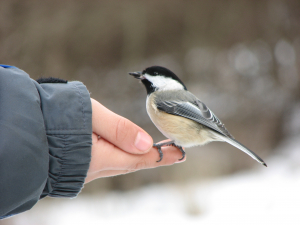
I hope this short blog has awakened your interest in soul gardening. If you want to learn more, I recommend Terry Hershey’s book. It’s a great winter read.
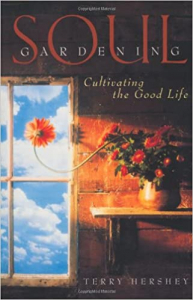
Editor’s Note: Loretta Jaunzarins is pastor of Grace Lutheran Church in Westdale (Hamilton). The Church along with its bountiful garden have enjoyed their last harvest, all the more poignant to feature the garden in winter.

